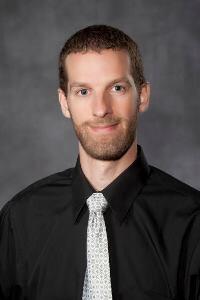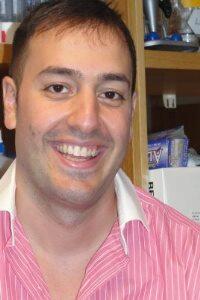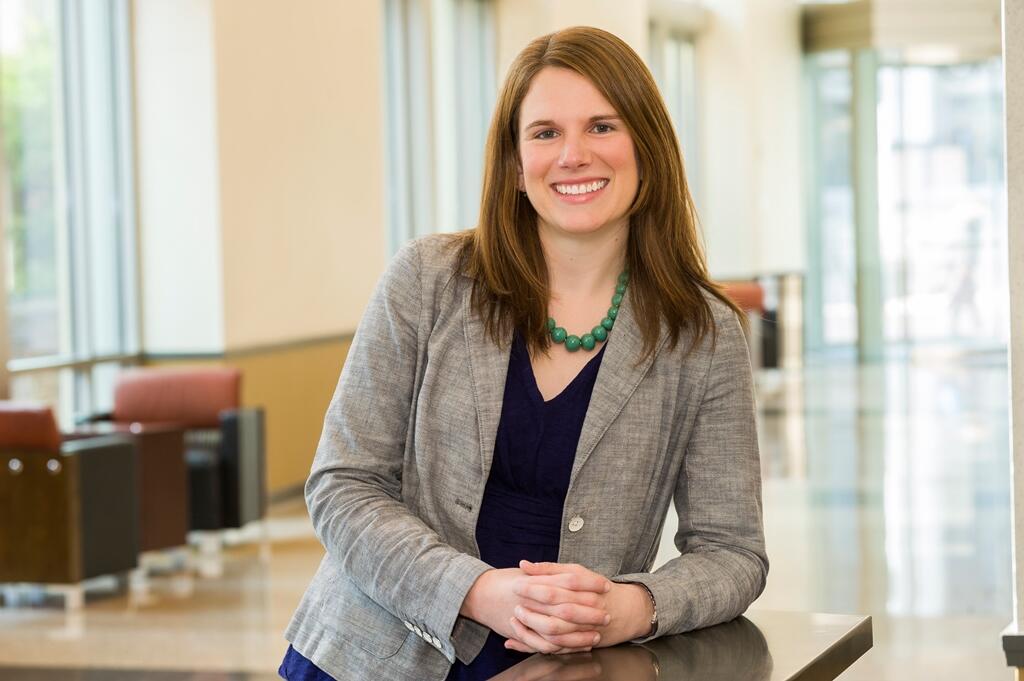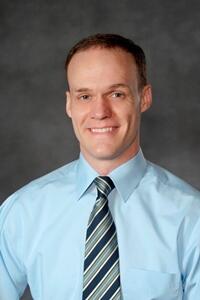June 4, 2015
Blick Scholars Program announces 2015 awardees
Share this story
Ten junior faculty members on the Virginia Commonwealth University Medical College of Virginia Campus have been named 2015 Blick Scholars for their medical research efforts.
Funded by the George and Lavinia Blick Research Fund, the Blick Scholars Program endowment is awarded every four years to a maximum of 10 junior faculty members on the MCV Campus. Blick Scholars are selected through a highly competitive nomination process that includes documented growth toward achievement of national or international recognition, a developing record of obtaining external research funding, collaborative scholarship and a primary faculty appointment in one of the health sciences schools. The awards provide $15,000 for each of the four years to support the research agenda of the Blick Scholars. The awards begin July 1.
The 2015 scholars are as follows:
School of Allied Health Professions

Benjamin J. Darter, Ph.D., assistant professor, Department of Physical Therapy
Darter’s research will examine how impaired function of the lower extremity impacts a person's ability to adapt their walking strategy. The goal of the research is toward developing interventions that physical therapy clinicians can use to facilitate a more adaptable walking strategy. The results of the research have potential to directly impact the design of prosthetic and orthotic devices, as well as techniques used in gait (walking) training.

Jonathan P. DeShazo, Ph.D., assistant professor, Department of Health Administration
DeShazo will use Blick funding to support his line of research that studies health care data. The availability of clinical data for research has increased dramatically, yet the limitations and potential biases of conclusions based on this observational data are not well understood. Specifically, DeShazo will develop preliminary results and enhance new research proposals that examine bias and other issues related to analyzing electronic health record data.

Anthony Faber, Ph.D., assistant professor, Philips Institute for Oral Health Research
Decades of research efforts have led to the current understanding that genetic alterations caused by DNA mutagens, aberrant chromosomal changes and error-prone DNA synthesis can, in some instances, cause cancer. Following the development of chemotherapies that indiscriminately targeted fast-growing cells, the concept that certain genetic alterations are largely responsible for the development of certain cancers has been successfully exploited, leading to the advent of “targeted therapies.” Routine annotation of a patient’s cancer genome at time of diagnosis is driving the implementation of appropriate targeted therapies to the correct patients. Many of these data have now been analyzed in large clinical trials, and much has been learned.
The Faber laboratory is interested in understanding which patients ultimately will benefit from specific target therapy regimens, and why. Much of this work relies on publicly available pharmacogenomics data to dissect responses to different drugs in genetically defined subsets of cancers. The next step is to rigorously validate those therapies further in laboratory studies including mouse models. Two recent studies from his group have underlined the value of this approach and they are working toward bringing the therapies into clinical trials, with an emphasis in the future on clinical trial development for head and neck cancers.

Carlos R. Escalante, Ph.D., assistant professor, Department of Physiology and Biophysics
Some of the most important biological processes occur at the protein-DNA interface of large macromolecular complexes that assemble on specific DNA sites to carry out precise DNA transactions. The main focus of Escalante’s laboratory is the study of the structure and function of proteins and protein-DNA complexes that drive these reactions.
One of the projects in Escalante’s research group focuses on unraveling the molecular mechanism by which the adeno-associated virus is able to integrate site-specifically into the host genome. AAV is one of the most promising gene therapy vectors and its integration site in humans is one of a few natural existing sites that are considered to be “safe harbors” for integration of transgenes into human genome. The goal of the project is to produce mechanistic insights into the site-specific integration by AAV rep proteins. An in-depth knowledge of this process at the molecular level will help optimize and design new strategies for clinical use. Escalante’s group uses a combination of techniques that include X-ray crystallography, electron microscopy and small-angle X-ray scattering, as well as other biophysical techniques such as analytical ultracentrifugation, calorimetry and fluorescence spectroscopy. This hybrid structural biology approach serves as the cornerstone of Escalante’s research activities.

Qinglian Liu, Ph.D., assistant professor, Department of Physiology and Biophysics
The award will fund the major research in Liu’s lab on structural and biochemical studies of Hsp70 molecular chaperones. Hsp70 stands for heat shock protein 70 kDa. Hsp70s are ubiquitous and highly conserved molecular chaperones that play multiple essential roles in maintaining cellular protein homeostasis. Maintaining protein homeostasis is one of the most fundamental cellular processes for every living organism, and defects result in many devastating human diseases, such as neurodegenerative diseases and various cancers. Hsp70s are key players in almost every process of maintaining protein homeostasis, including protein folding, assembly, transport across membrane and degradation.

Lindsay Sabik, Ph.D., assistant professor, Department of Healthcare Policy and Research
Sabik is studying access, utilization, and health outcomes among low-income populations, with a particular focus on state Medicaid programs and cancer care for underserved populations. Results from her ongoing research suggest that managed care arrangements may increase preventive care among Medicaid enrollees. Given increased reliance on managed care in state Medicaid programs, mixed findings on the effects of managed care from previous studies, and growth in the Medicaid program under that Affordable Care Act, understanding the effects of managed care for low-income publicly insured individuals is important for current policy. The Blick grant will allow Sabik to closely examine the effects of managed care for this underserved population and inform state and federal policy makers and program officials.

Jessica LaRose, Ph.D., assistant professor, Department of Social and Behavioral Health
LaRose’s program of research is focused on the behavioral treatment of chronic disease, primarily obesity and diabetes, in high-risk and underserved populations. She develops and implements comprehensive lifestyle modification programs for the treatment of obesity with the goal of producing weight loss and positive changes in metabolic functioning. Her currently funded work in this area is focused on how best to translate evidence-based lifestyle interventions,which historically have been intensive and required significant in-person contact with specialized providers, to make them more accessible and scalable in real-world settings. The funds provided by the Blick Scholars program will allow LaRose to expand her current work and to study the interplay of demographic, behavioral and physiological variables as they relate to program engagement and outcomes. The collection of additional data within the context of her ongoing trials would not be possible without the support of the Blick Scholars program.

Alison Montpetit, Ph.D., R.N., assistant professor, Department of Adult Health and Nursing Systems
The primary focus of Montpetit’s research is in exhaled breath biomarkers and their relationship with clinical outcomes, specifically in the mechanically ventilated, critically ill population and adults experiencing rib fractures.

Leticia Moczygemba, Pharm.D., Ph.D., assistant professor, Department of Pharmacotherapy & Outcomes Sciences
Moczygemba's research program focuses on working with communities and health systems to mitigate health disparities by developing patient-centered interventions to optimize medication-related health outcomes. Moczygemba has worked to advance the health care of homeless individuals, older adults and those living in rural areas through the development, implementation and evaluation of care models that integrate pharmacists with health care teams. She uses qualitative and quantitative techniques and quality improvement principles to assess the clinical, economic and humanistic impact of emerging care models.

Benjamin Van Tassell, Pharm.D., assistant professor, Department of Pharmacotherapy & Outcomes Science
Van Tassell’s project is devoted to exploring the link between inflammation and heart failure. His team is conducting studies in both animals and humans to determine the source of inflammation in cardiovascular disease and design novel approaches for blocking that inflammation. They are currently conducting multiple clinical trials in patients with heart attacks and heart failure to determine whether targeted anti-inflammatory medication can prevent heart failure, reduce hospitalization and improve exercise capacity in these patients.
Subscribe for free to the weekly VCU News email newsletter at http://newsletter.news.vcu.edu/and receive a selection of stories, videos, photos, news clips and event listings in your inbox every Thursday. VCU students, faculty and staff automatically receive the newsletter.
Subscribe to VCU News
Subscribe to VCU News at newsletter.vcu.edu and receive a selection of stories, videos, photos, news clips and event listings in your inbox.













